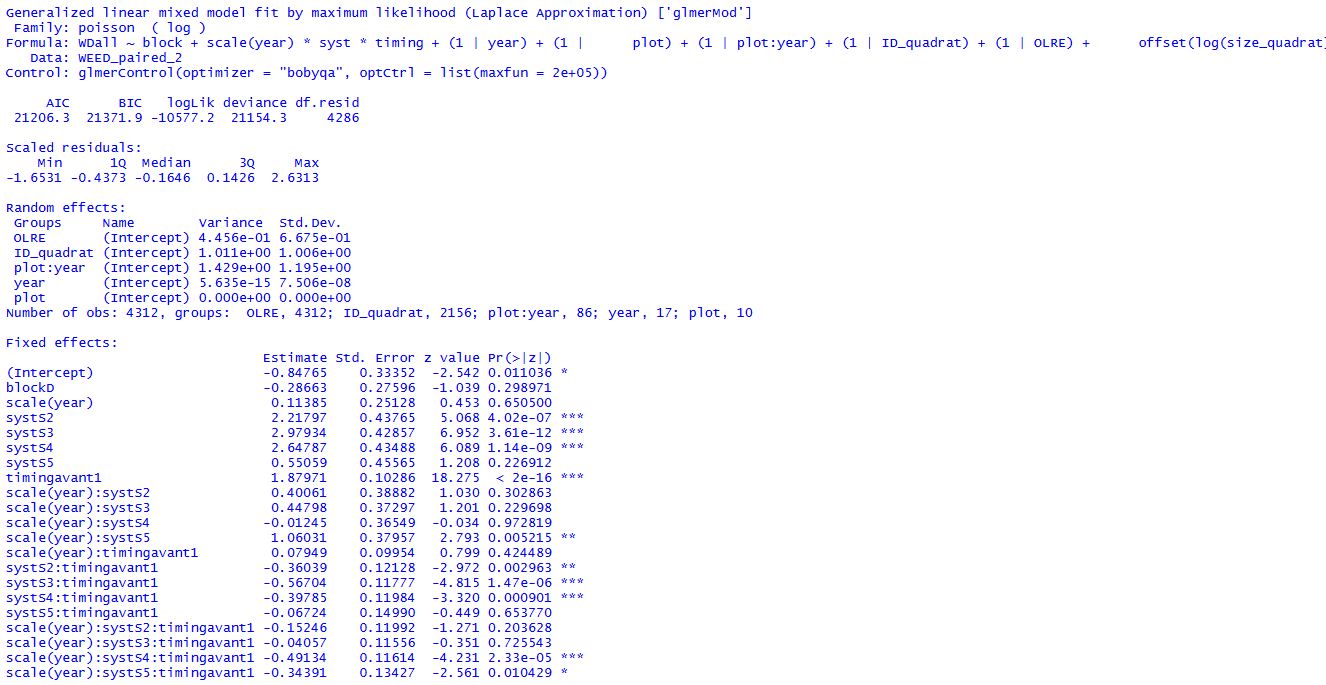I have the following mixed model (package {lme4} in R) :
mod=glmer(Weed_density~block+scale(year)*syst*timing+(1|year)+(1|plot)+(1|plot:year)+(1|ID_quadrat)+(1|OLRE)+offset(log(size_quadrat)),family=poisson(link="log"),dat=WEED)
Here is the model output:
I have a significant triple interaction between year : syst : timing.
Year (=time) is continuous, syst(=treatment) has 5 levels and timing(=sampling session) has two levels.
I wish to set up constrats to test if the slopes for scale(year):syst differ from zero at level 1 of timing.
It seems like we can do this with testInteractions from package {phia} but the following set-up doesn't seem correct (or I don't see how "Value" is computed):
testInteractions(mod1,custom=list(syst=c(1,0,0,0,0),timing=c(1,0)), slope="scale(year)", adjustment="none")
Here is the output:
Could anyone shed their light on this?
This was previously discussed in the following link (but only for linear models with only continuous predictors): Test whether simple slopes are different from zero in 3-way interaction in multiple regression
It was also discussed in the following link (but only for second order interactions in mixed models): Mixed model interaction (covariate+factor): How to interpret posthoc table output in R package phia?


